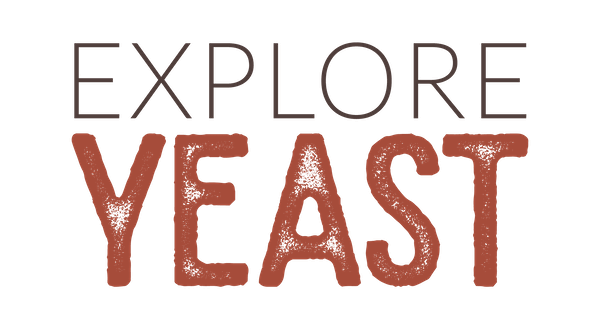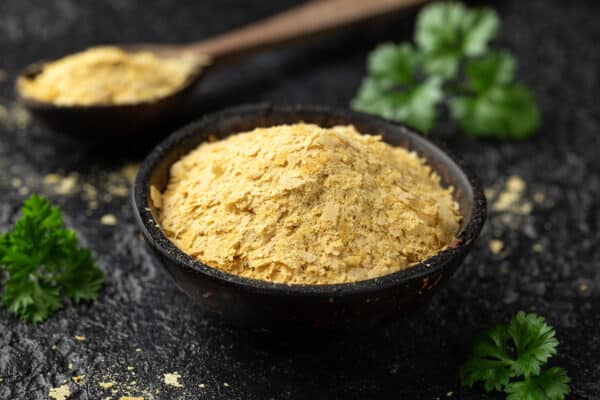Nutritional yeast: a complete ingredient for a balanced diet
Yeast was discovered ages ago, through bread making. Egyptians had noticed this specificity without really understanding it.They used yeast purely for its fermentation properties, to provide flavor and texture. But yeast can do more! It is a natural-origin product, produced in different forms. It has several derivatives and is used in different ways, each one with its own benefits.
Let’s take nutritional yeast as an example. It is used in dietary supplements, for seasoning or in functional foods. It is a nutrient-rich ingredient offering proteins, fibers, vitamins, and minerals. These compounds can benefit one’s health in different ways. Therefore nutrition experts, industries, and consumers call yeast a healthy product.
Did you know? The nutritional composition is one of the most important differences between yeast and baking powder. The latter is lacking these beneficial compounds. Learn more about it in this article
What does this nutritional punch do for you?
Using yeast is an excellent way to deliver nutrients. It provides proteins, fibers, vitamins, and minerals. These nutrients are important to our organism and play an essential role in our health. But what’s in it for you? Let’s take a closer look at the many benefits of this ingredient.
Let’s talk first about its protein content. Yeast contains 100% non-animal plant-based proteins that are high in quality. They provide all nine essential amino acids that your body requires. Amino acids are constituent parts of proteins. The nine essential amino acids must be supplied by your food intake because the human body can’t produce them. That’s why yeast is seen as a very interesting protein.
Then dietary fibers are the next level. Having a sufficient daily fiber intake is recommended because:
- They play a role in our bowel function.
- They are important for satiety.
- They benefit the gut microbiota*.
But that’s not all! Yeast is a strong source of B-vitamins. The B family is essential to help you uptake and use the energy from what you eat. Many of these are also crucial to your nervous system and help reduce tiredness and fatigue. Yeast contains:
- Thiamine (B1)
- Riboflavin (B2)
- Niacin
- Pyridoxine (B6)
- Folic acid (B9)
- Vitamin B12
Thiamine and riboflavin contribute both to normal skin and vision. While folic acid and pyridoxine play a role in the normal function of the immune system (and Folic acid or Folates play a key role in Women’s Health). Last but not least, vitamin B12 is particular and widely researched. It is known as the vitamin of the meat-lovers because animal products are a good source of it. Thus, vegetarians and vegans should consume other food sources of this vitamin. If not, they are at risk of a deficit. Luckily, there is a solution to everything, and one of natural origin: yeast.
Yeast can benefit all vegetarians, vegans, flexitarians, and meat lovers, thanks to the amount of nutrients it provides.
Did you know?
Early pregnancy requires folic acid. Because it ensures the good development and growth of the fetus. It is recommended to have a good vitamin B9 intake even before pregnancy.
Yeast also contains phosphorus and zinc, essential elements for our health. The body uses phosphorus for energy-yielding metabolism. It is also used for the maintenance of normal bones and teeth. Zinc has many functions in the human body: the maintenance of normal bones, hair, nails, and skin.
Furthermore, yeast does not contain cholesterol and has very low quantities of saturated fats, which should be consumed in small quantities. They are often found in products of animal origin. Yeast is compatible with plant-based diets like the vegetarian and the vegan diet. And it does not contain lactose.
It should also be noted that yeast in its active (living) form has probiotic properties. More information here.
Why add nutritional yeast to your food intake even if you aren’t vegan?
The answer is rather easy. You can use yeast for its ability to increase taste, add flavor and optimize texture in foods but that’s not all. The nutritional benefits it can provide are much appreciated as well. The important nutrients present in yeast can play an important role in the human diet. This savory and natural-origin product is packed with a nutritional punch! Each nutrient plays a specific role and participates in the proper functioning of our body.
Yeast is no more than 6 to 8 thousandths of a millimeter but is an incredible micro-organism. It contains an impressive amount of nutrients and can be used daily! It adds flavor and is also easy to cook with it! You can add a serving of nutritional yeast to eggs, nachos, pasta sauces, rice, pizza and soup, and much more…. Or sprinkle flakes or powder of yeast on popcorn or even on salads or soups! You can also season tofu or vegetal meat alternatives with it. It will always make a great addition to your diet thanks to its high protein, fiber, and vitamin content.




